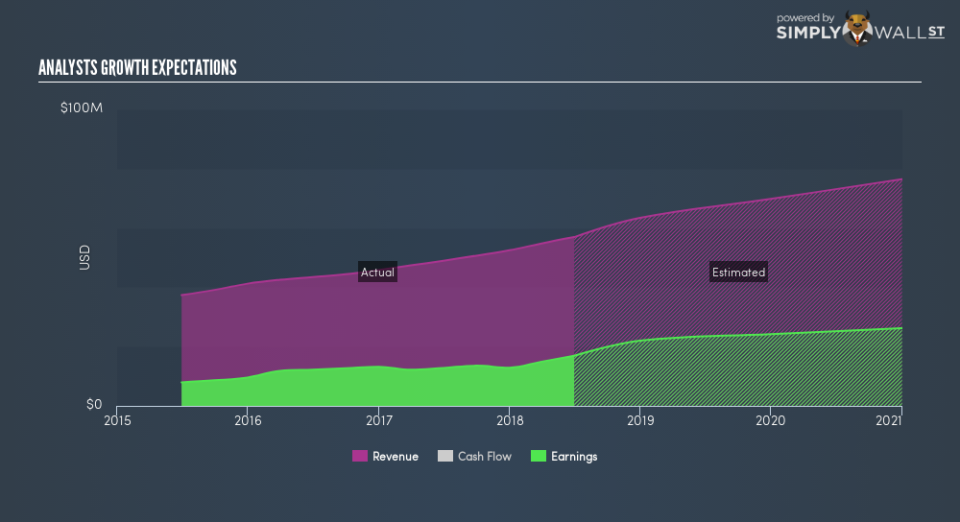How Confident Are Insiders About Unity Bancorp Inc (NASDAQ:UNTY)?

Unity Bancorp, Inc. operates as a bank holding company for Unity Bank that provides a range of business and consumer financial services to individuals, small and medium sized businesses, and professional communities. Unity Bancorp is one of United States’s small-cap stocks that saw some insider selling over the past three months, with insiders divesting from 5.00k shares during this period. Generally, insiders selling shares in their own firm sends a bearish signal. A research published in The MIT Press (1998) concluded that stocks following insider selling fell 2.7% compared to the market. But these signals may not be sufficient to gain confidence on whether to divest. I’ve assessed two potential reasons behind the insiders’ latest motivation to sell their shares.
Check out our latest analysis for Unity Bancorp
Which Insiders Are Selling?
More shares have been sold than bought by Unity Bancorp’s insiders in the past three months. In total, individual insiders own over 1.34 million shares in the business, which makes up around 12.5% of total shares outstanding. The insider that recently sold more shares is James Hughes (management and board member) .
Does Selling Activity Reflect Future Growth?
Analysts’ expectations for earnings over the next 3 years of 51.8% provides an upbeat outlook going forward. But this is not consistent with the signal company insiders are sending with their net selling activity. Digging deeper into the line items, Unity Bancorp is believed to experience a double-digit top-line growth over the next year, which appears to flow through to larger earnings growth expectations. This could indicate significant cost-cutting activities or a high degree of economies of scale which may have a compounding impact in the future. However, company insiders appear to know something the market doesn’t and have been divesting from the stock. This may mean they believe the impressive net income growth is hard to sustain or that optimistic sentiment has led to inflation of the share price.
Can Share Price Volatility Explain The Sell?
Another factor we should consider is whether the timing of these insider transactions coincide with any significant share price movements. Volatility provides an opportunity to trade on market inefficiencies when the stock is under-priced compared to the stock’s intrinsic value. Unity Bancorp’s shares ranged between $25.3 and $22.2 over the past three months. This suggests a trivial share price movement, with a change of 13.96%. This may mean insiders’ motivation to trade may not be driven by the share price but rather other factors such as their belief in company growth or their personal portfolio diversification needs.
Next Steps:
Unity Bancorp’s net selling activity tells us the stock has fallen out of favour with some insiders as of late, though the positive growth in expected earnings tells us a different story, and the share price movement may be too trivial to cash in on any mispricing. However it’s crucial to note that insider divesting may have nothing to do with their views on the company’s future performance. Moreover, while insider selling can be a useful prompt, following the lead of an insider, however, will never replace diligent research. there are two key aspects you should further examine:
Financial Health: Does Unity Bancorp have a healthy balance sheet? Take a look at our free balance sheet analysis with six simple checks on key factors like leverage and risk.
Other High Quality Alternatives : Are there other high quality stocks you could be holding instead of Unity Bancorp? Explore our interactive list of high quality stocks to get an idea of what else is out there you may be missing!
NB: Figures in this article are calculated using data from the last twelve months, which refer to the 12-month period ending on the last date of the month the financial statement is dated. This may not be consistent with full year annual report figures.
To help readers see past the short term volatility of the financial market, we aim to bring you a long-term focused research analysis purely driven by fundamental data. Note that our analysis does not factor in the latest price-sensitive company announcements.
The author is an independent contributor and at the time of publication had no position in the stocks mentioned. For errors that warrant correction please contact the editor at editorial-team@simplywallst.com.


